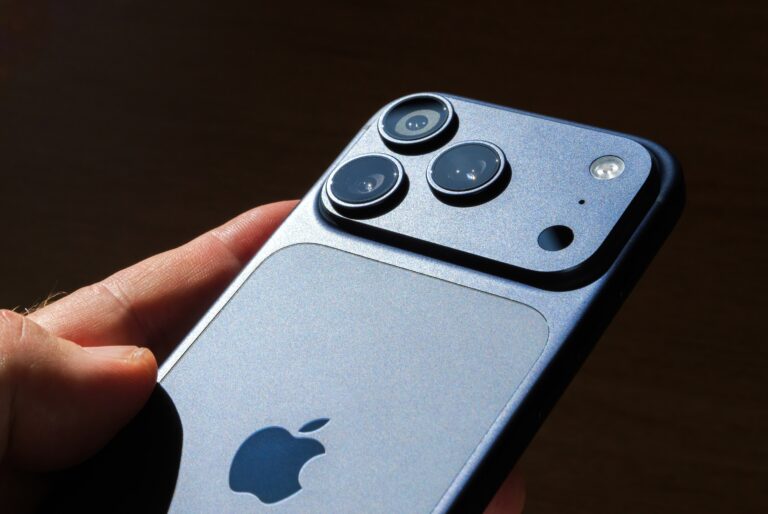Surging iPhone demand pushed Apple’s revenue higher in the quarter ending September, closing the fiscal year with record profits. The company posted stronger-than-expected results despite global trade tensions and its ongoing effort to match Big Tech rivals in artificial intelligence.
Apple’s performance, revealed Thursday, reflected strong initial sales of the iPhone 17 lineup launched last month. “Apple proudly reports record September quarter revenue of $102.5 billion, with all-time highs for iPhone and Services,” said CEO Tim Cook.
The iPhone’s success drove Apple’s profit to $27.5 billion (€23.8bn), nearly doubling last year’s figure. Investors responded positively, sending Apple shares up 2% in after-hours trading.
Although the iPhone 17 lacks the AI capabilities seen in Samsung and Google devices, Apple enhanced the design with sleek “liquid glass” displays. The company maintained its pricing despite tariffs imposed by President Donald Trump, which added $1.1 billion (€950m) in costs last quarter and could total $1.4 billion (€1.2bn) in the next.
Consumer enthusiasm, especially in the U.S. and Europe, lifted iPhone revenue to $49 billion (€42.4bn) from July to September—a 6% increase from a year earlier. Analysts had forecast 8% growth, compared with 13% in the previous quarter.
Ben Barringer, global head of technology research at Quilter Cheviot, noted, “Mac sales climbed 12%, iPhone sales grew 6%, but iPad and wearables remained flat.” He added that “sales in China fell 4% due to forecasting errors and supply limits.”
IDC estimated global iPhone shipments at 58.6 million units during the quarter, placing Apple second to Samsung’s 61.4 million.
Apple ended its fiscal year with a record $112 billion (€96.8bn) in net income, up 20% from the previous year.
Holiday Outlook Points to Further Growth
During a call with analysts, Tim Cook predicted continued momentum for the iPhone 17 lineup through the year’s final months. Apple’s CFO Kevan Parekh projected iPhone sales to climb at least 10% over last year’s holiday season, with total revenue rising at a similar pace.
“Apple’s Q1 guidance of 10–12% revenue growth looks strong heading into Christmas, supported by iPhone 17 demand,” said Barringer.
Investor Confidence Faces Mixed Signals
Apple’s stock has surged since International Data Corp. reported record iPhone sales for the July–September period. The rally lifted Apple’s market value above $4 trillion this week, setting the stage for another high during Friday’s trading.
However, Apple remains behind in the AI race, a gap highlighted as Nvidia became the first company to reach a $5 trillion valuation. Apple had promised extensive AI upgrades for last year’s iPhones but delivered only a few. A more advanced Siri remains delayed until next year.
Barringer questioned whether Apple can sustain investor enthusiasm. “With uncertainty in China and faster growth at Microsoft and Nvidia, some investors may shift focus,” he said.
Yet Apple often enters new technology arenas late before dominating them. Wedbush Securities analyst Dan Ives predicted that stronger AI integration could add $1 trillion (€860bn) to $1.5 trillion (€1.3tr) to Apple’s market value, raising the share price by $75 to $100.

